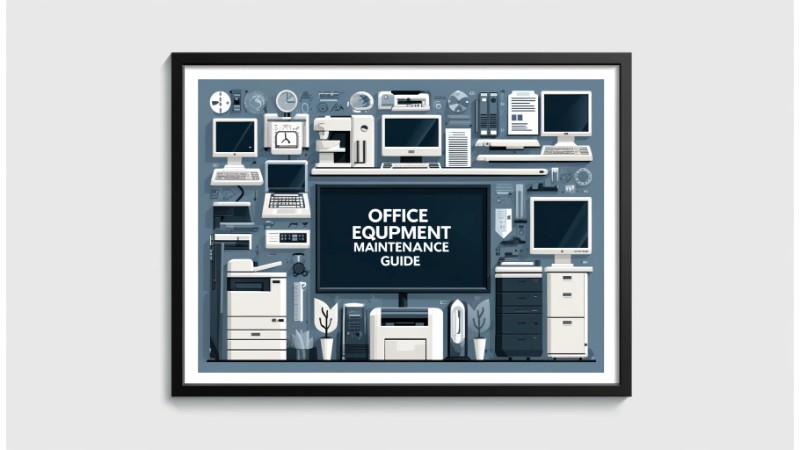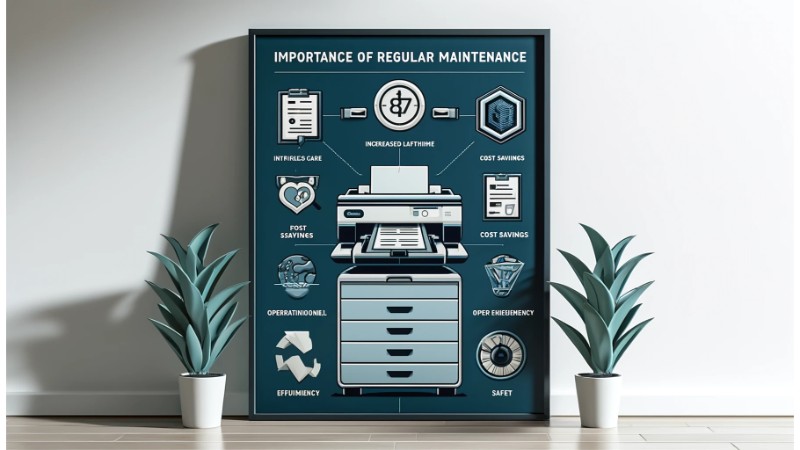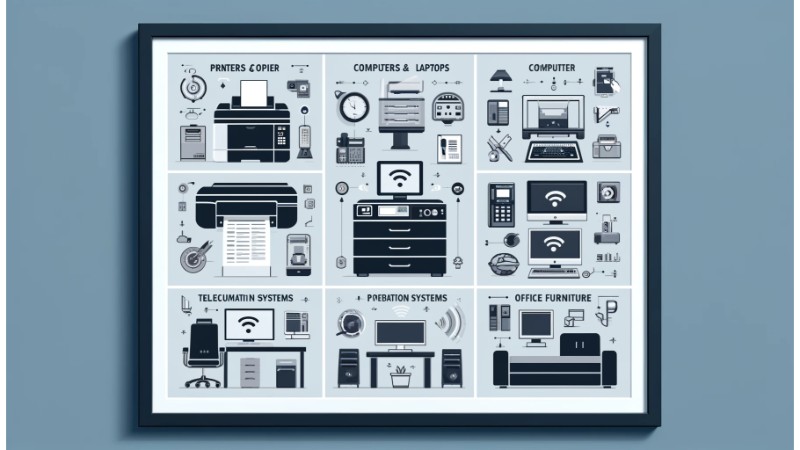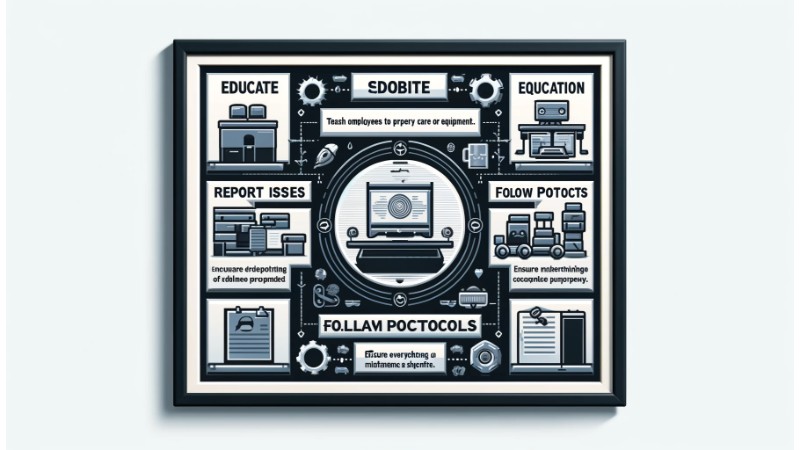Office Equipment Maintenance

Maintaining office equipment is crucial for ensuring operational efficiency and prolonging the lifespan of your assets. Proper maintenance not only prevents unexpected breakdowns but also saves on costly repairs and replacements. This guide will walk you through essential tips for maintaining various types of office equipment, ensuring that your workplace remains productive and hassle-free.
1. Importance of Regular Maintenance
Regular maintenance of office equipment offers several benefits:
Increased Lifespan: Proper care can significantly extend the life of your equipment.
Cost Savings: Preventive maintenance reduces the need for expensive repairs and replacements.
Operational Efficiency: Well-maintained equipment operates more efficiently, minimizing downtime and boosting productivity.
Safety: Regular checks can prevent accidents caused by faulty equipment.
 2. Common Office Equipment and Maintenance Tips
2. Common Office Equipment and Maintenance Tips
Printers and Copiers
Printers and copiers are essential in any office environment. Here’s how to keep them in top condition:
Regular Cleaning: Dust and debris can accumulate, causing jams and poor print quality. Clean the printer’s exterior and interior regularly.
Replace Consumables: Monitor ink and toner levels, and replace them before they run out completely.
Update Software: Keep the printer’s firmware and drivers up to date to ensure compatibility and performance.
Professional Servicing: Schedule regular professional servicing to address any potential issues and maintain optimal performance.
Computers and Laptops
Computers and laptops are the backbone of modern offices. Maintaining them involves:
Software Updates: Regularly update operating systems and software to ensure security and efficiency.
Antivirus Protection: Install and maintain antivirus software to protect against malware and viruses.
Hardware Checks: Periodically check for hardware issues, such as loose connections or overheating.
Backup Data: Regularly back up important data to prevent loss in case of hardware failure.
 Telecommunication Systems
Telecommunication Systems
Effective communication is vital for any business. Here’s how to maintain your telecommunication systems:
Inspect Cables: Regularly check and replace any damaged cables or connectors.
Update Firmware: Keep your telecommunication devices’ firmware up to date.
Clean Devices: Dust and clean phones and other devices to prevent malfunctions.
Test Systems: Periodically test your systems to ensure they are functioning correctly.
Office Furniture
Office furniture also requires maintenance to ensure comfort and durability:
Tighten Screws and Bolts: Regularly check and tighten screws and bolts on chairs, desks, and other furniture.
Clean and Polish: Clean surfaces and polish wood furniture to maintain its appearance and durability.
Repair or Replace: Address any damage promptly to prevent further deterioration.
3. Creating a Maintenance Schedule
A structured maintenance schedule ensures that all office equipment receives the attention it needs. Follow these steps to create an effective schedule:
Inventory: List all office equipment and note their maintenance requirements.
Frequency: Determine the frequency of maintenance tasks (daily, weekly, monthly, annually).
Assign Responsibilities: Designate specific tasks to team members or hire professional maintenance services.
Record Keeping: Keep detailed records of all maintenance activities for reference and accountability.
4. Training and Awareness
Training your staff on the proper use and maintenance of office equipment is essential. Conduct regular training sessions to:
Educate: Teach employees how to properly use and care for equipment.
Report Issues: Encourage reporting of any issues or malfunctions promptly.
Follow Protocols: Ensure everyone follows maintenance protocols and schedules.
 Conclusion
Conclusion
Effective office equipment maintenance is crucial for maximizing productivity, safety, and cost savings. By implementing regular maintenance routines, creating a structured schedule, and training your staff, you can ensure your office equipment remains in excellent condition. This proactive approach will not only enhance the efficiency of your operations but also contribute to a more pleasant and productive work environment.

